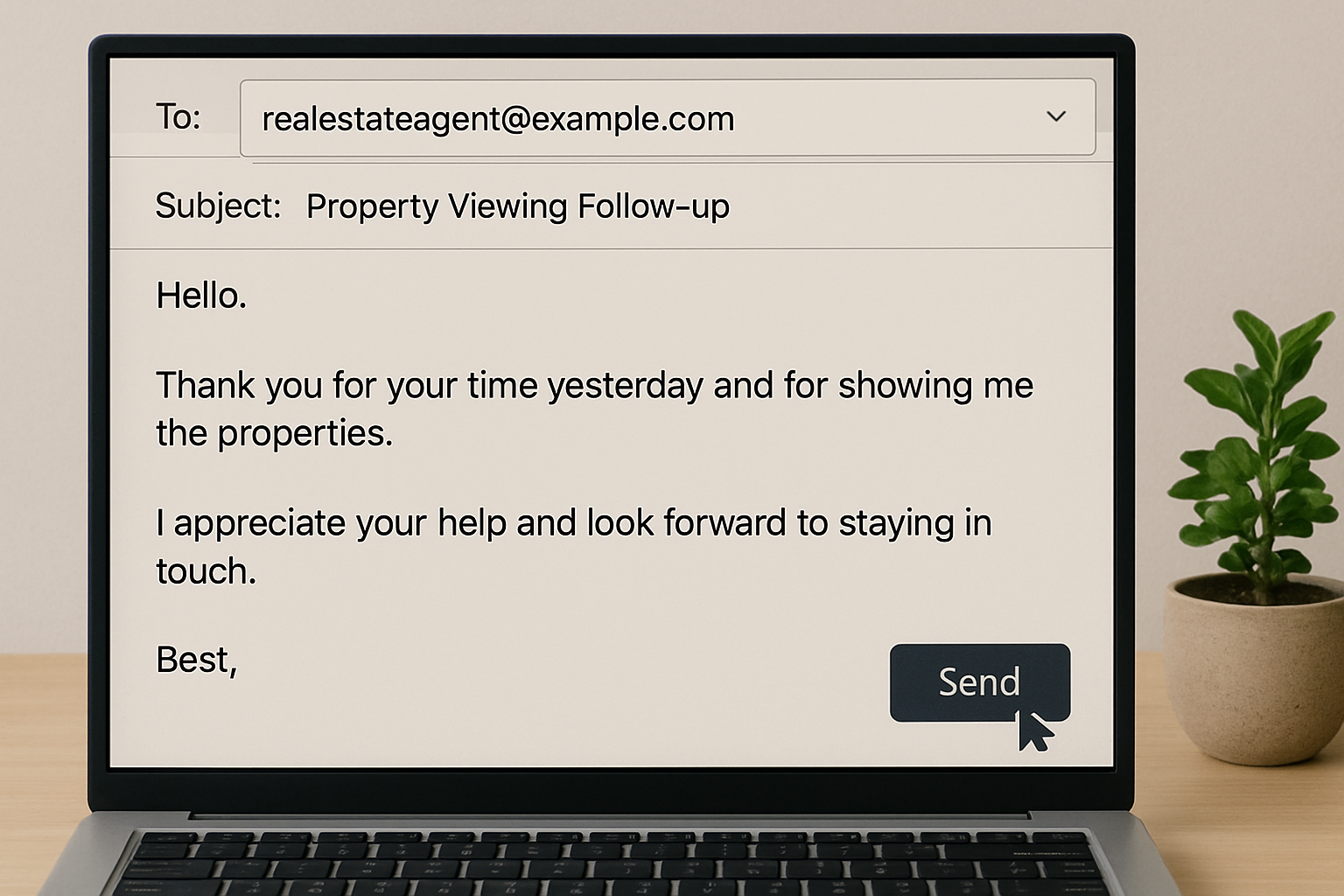It is important for property owners to understand the breakdown of the monthly management fees they pay and whether they are getting value for their money. Outsourcing the work to a management company reduces the burden on the owner, but on the other hand requires ongoing payment of a commission that represents several percent of the rental income. This article will step through the basic components of property management fees, market rates, cost-effective cases, how to choose the right management company, and the characteristics of companies like INA & Associates that offer high value-added services.
1. basic structure of property management fees
The property management fee is the compensation paid when the management of a rental property is outsourced to a management company. This fee includes a variety of services and can be broadly divided into the following components
-
Rental management services (contract, collection, reminders, etc.): This refers to a series of services related to the rental contract, from recruiting tenants, concluding contracts, collecting rent and reminding tenants of late payments, to contract renewal and cancellation procedures. The management company handles property advertisements and previews, screening of prospective tenants, preparation of contracts, and rent collection and remittance to the owner after the tenant has moved in. In particular, the rent collection service ensures that monthly rent is collected from tenants, and if there is nonpayment, the company promptly reminds the owner of the amount owed and remits the amount to the owner. This office management service provides the owner with a stable income.
-
Tenant relations (handling complaints, recruiting, contract renewal, etc.): This includes handling inquiries and complaints from tenants, handling problems during the contract period, and handling contract renewals. For example, when there is a breakdown of equipment or a neighbor trouble, the management company acts as the contact point to promptly arrange for repairs and make adjustments. In addition, recruiting tenants when vacancies occur (vacancy countermeasures)** is also an important task. By providing advice on advertising strategies to increase the attractiveness of the property and setting appropriate rents, we aim to shorten the vacancy period by securing new tenants at an early stage. In most cases, brokerage fees for tenant recruitment are charged separately from management fees.
-
Building management services (general building maintenance): These services are related to the maintenance and management of the property itself, such as periodic cleaning of common areas, facility inspections, arrangements for repairs in case of breakdowns, and periodic building patrols. Older buildings may require systematic repairs, and the management company will use its expertise to perform appropriate maintenance. This helps to maintain and improve the asset value of the building, as well as provide a comfortable and safe living environment for tenants.
As described above, property management fees generally include compensation for a wide range of management services. Depending on the contract, other services may also be provided, such as24-hour emergency response,rent guarantees, and arrangements for attending the tenant's departure and restoring the property to its original condition. The major advantage of outsourced property management is that it helps to maintain the value of the property and improve tenant satisfaction by having a professional handle tasks that would require too much time and expertise for the owner to handle on his/her own. 2.
(2) General market rates of commissions and differences by region and property
The general rule of thumb is that the market rate for a management fee is approximately 5% of rent income. For example, if the monthly rent and common service fee for a property is 100,000 yen, the monthly management fee would be around 5,000 yen. This 5% rate is the national average, but in reality it varies depending on the area and the size and type of the property.
In some cases, the commission rate is slightly higher , around 7%, for luxury condominiums in urban areas due to the high demand for service quality, while in some cases, the rate is kept at around 4% for properties in rural areas. In addition, when the rent level of a property is extremely low, a flat-rate fee structure of " XX yen per unit " may be adopted. For example, in the case of an apartment in a regional city with a low rent range, a fixed fee of several thousand yen per unit may be used because a 5% fee is unprofitable for the management company. On the other hand, large properties in central Tokyo tend to have a slightly higher commission rate due to the complexity of management operations.
Furthermore, the commission rate varies depending on the scope of the management contract. In the case of general full management (all aspects from tenant recruitment to daily management are outsourced), the commission rate is generally around the aforementioned 5%, but when only limited services such as rent collection agency services are requested, the market rate is said to be around 2-3%. On the other hand, in the case of sublease contracts, in which the management company takes over the entire property and guarantees a certain amount of rent, the commission is high enough to bear the management risk, and in some cases, 10-20% of the rent income is deducted. In some cases, the commission varies widely depending on the extent to which the company is entrusted with the management of the property, ranging from 3% to 20% in practice. Since management fees vary depending on the services provided by each management company and the type of contract, it is important to confirm what is included in the fee, rather than judging it to be high or low based solely on the fee rate quoted.
It is also important to note that management fees are usually only charged for occupied properties. As a rule, there is no rent income while the property is vacant, so no fees are charged. Therefore, if rental income decreases due to vacancies, the total amount of commissions paid will also decrease, but conversely, management commissions are only charged when the property is fully occupied. It is important for owners to understand that not only the commission rate, but also the occupancy rate of the property will affect their total expenses. 3.
(3) Cases that result in higher profits despite high commissions
It is natural to want to "keep management fees as low as possible," but prioritizing low fees alone may actually lead to a decline in profitability. In rental management, the important thing is to maximize the net income (income minus expenses), which is the rent income minus expenses, and it would be a complete turnaround if the rent income itself decreases because of the commission savings. Let's take a look at some cases in which a higher management fee rate ultimately contributes to the owner's profit improvement, even if the fee rate is higher.
-
Decrease in vacancy rate (maintenance of high occupancy rate): A good management company has a wide network to attract customers and make proposals to increase the attractiveness of the property, and even if a room becomes vacant, the company will quickly find another tenant, resulting in maintaining a high occupancy rate. For example, consider the case of an apartment building with 10 units, each with a rent of 50,000 yen, where one unit is vacant. In this case, the rent income is 450,000 yen for 9 units. Even if the management fee is reduced from 5% to 3%, the monthly cost reduction would be only about 9,000 yen. On the other hand, if the vacancy is filled quickly by entrusting the property to a reliable management company, the income will increase significantly with the addition of 50,000 yen in rent from the new tenant. In fact, even with a 5% commission, if the property is fully occupied, the estimated monthly take-home pay will be approximately 38,500 yen more than with a 3% commission and one vacant unit, indicating that the effect of filling a vacancy is far greater than the difference of a few percentage points in commission. In short, the reduction of vacancies is more directly related to profitability than the amount of management fees, so high-quality management services are well worth the investment.
-
Faster response to problems (risk reduction): Equipment breakdowns, problems between tenants, and other problems can occur in rental management, but delays in response can lead to lower tenant satisfaction and increased secondary damage. Even if fees are higher, a management company with a complete support system, including 24-hour emergency response and full-time professional staff, will be able to respond promptly onsite, even late at night or on holidays. For example, in the event of a water leak, if the person in charge and affiliated contractors rush to the scene immediately to deal with the problem, the extent of damage can be minimized. On the other hand, if the management company is not responsive, complaints may come directly from tenants to the owner, and the meaning of outsourcing will be lost. A high quality management company can reduce the risk of trouble itself, so it can be said to be cost effective in terms of buying peace of mind. A high level of satisfaction in dealing with tenants will lead to long-term occupancy, contributing to a reduction in void losses due to vacancies and re-recruitment costs.
-
Optimization of repair and maintenance costs: Some companies that charge low management fees try to keep monthly income low while generating revenue under other names. For example, some companies charge for restoration work at the time of move-out using expensive contractors designated by the company, or ask owners to pay a hefty contingency fee (advertising fee) when moving in. As a result, the total cost borne by the owner will increase, which may lead to a situation where "the fee is low, but the owner is losing money in other areas. A reliable management company will avoid unnecessary construction work and excessive costs, while at the same time, they will try to reduce long-term repair costs through accurate maintenance. For example, periodic inspections can detect and address problems at an early stage to prevent major breakdowns, and discounts can be obtained from repair companies through the economies of scale of multiple properties. Some management companies have a policy of allowing owners to freely place orders with contractors designated by the owner and not directing profits to specific contractors. A company that manages costs transparently in this way will ultimately prevent unnecessary expenses and increase profits, even if the commission rate is superficially high.
From the above perspectives, it is not advisable to make a decision based solely on the "highness" of the management fee. Rather, it is necessary to consider whether the benefits (increased earnings and reduced risk) gained by paying the fee are worth the cost. In fact, the reason why it is said, "Do not choose a management company based solely on the low management fee" is because if the quality of service is low, vacancies will increase and problems will occur frequently, which will have a negative impact on income, leading to a loss in the total. While cost reduction is important, it is important to keep in mind that stable management by a reliable management company is directly related to maximizing the owner's profit.
Checkpoints for Selecting a Management Company
When selecting a property management company, it is important to compare and consider not only the lowest fees, but also a comprehensive viewpoint. Below are some of the main points to look for when assessing a property management company.
-
Scope and content of services provided: Confirm the extent to which the company will be able to handle your needs if you outsource to them. In addition to rent collection and complaint handling, check whether the company offers a full range of services, including tenant recruitment, periodic cleaning, facility inspections, contract renewal procedures, and move-out procedures. It is also necessary to know in advance if there are any additional charges for services not included in the standard management fee (e.g., advertising fees when recruiting tenants, settlement administration fees when tenants move out, etc.).
-
Track record (number of properties managed, occupancy rate, etc.): A company' s track record of managing properties is an indicator of reliability. A company with a large number of managed units has accumulated a wealth of know-how, and can be expected to have a high level of experience in dealing with problems and attracting customers. In particular, a high average occupancy rate and a track record of long-term occupancy that is publicly announced are proof of a company's ability to deal with vacancies. As a rule of thumb, an annual occupancy rate of 95% or higher is an excellent standard.
-
Quality of the person in charge (communication skills): The competence of the person actually in charge of the property is also important. From the meeting stage before signing the contract, observe whether the answers to your questions are clear, whether the proposals are well-reasoned, and whether the response time is quick. In rental management, the relationship between the owner and the management company is a long-term one, so whether or not you can trust the person in charge is a major factor in your decision. In the case of tenant relations, the skill and sincerity of the person in charge directly affects the level of tenant satisfaction. A company that responds promptly and politely to even the most trivial contact will provide peace of mind.
-
Ability to respond to emergencies: Check to see if the company is prepared for emergencies such as equipment breakdowns or disasters, if there is a 24/7 call center or on-duty system, and if there is an extensive network of affiliated repair companies. Ideally, a management company should be able to respond immediately to a water leak or power outage in the middle of the night, and a management company with such an infrastructure will give you peace of mind. Prompt initial response is essential for preventing damage from spreading and maintaining the trust of tenants.
-
Transparency of cost structure: Check not only the percentage of management fees presented, but also other costs and penalty clauses in the contract. Check for any unclear points such as termination conditions (whether or not there is a penalty fee), arrangements for renovation costs, and handling of rent guarantee company fees. A good management company will clearly explain what services will cost and how much they will cost. If you sign a contract without clarification, you may later discover "additional costs you were not told about," which could lead to trouble.
It is important to comprehensively consider these points and determine the balance between reliability, service content, and cost. In particular, do not get caught up in superficial comparisons such as "fees are X% cheaper than other companies," but choose a company based on the benefits and peace of mind that you will gain by entrusting your property to that company. The final criterion is whether or not the owner is satisfied with the company. Receive proposals from multiple companies and find the management partner that best suits your property and your policies. 5.
5. characteristics of a management company that provides high value-added services
In recent years, some management companies have begun to offer unique, value-added services that go beyond traditional management services. Companies such as INA & Associates, for example, are unique in that they offer next-generation rental management services that combine IT technology and expertise. Below are some common characteristics of management companies that offer such high value-added services.
-
Improved efficiency and transparency through the use of the latest technology: A major strength of the company is its use of AI and cloud systems to streamline and upgrade various tasks in rental management. For example, we have a system that uses AI analysis of vast amounts of market data to perform precise assessments of appropriate rents and propose optimal rent settings to owners. In addition, we have made contract-related procedures paperless and concluded contracts electronically to ensure speedy and reliable operations. In addition, the company shares property income/expenses reports, repair histories, cleaning photos, and other information on its proprietary cloud management system to achieve a high level of information transparency that enables owners to grasp the status of their properties at any time. This technology reduces human error and operating costs while improving the quality of service.
-
Low cost and clear pricing: Some companies are offering lower management fees as a result of IT efficiencies. INA&Associates, for example, has a revolutionary fee plan witha flat rate of 1,000 yen per unit per month, which is a significant cost savings compared to the typical commission system of around 5%. The flat-rate system also has the advantage of making it easier to plan expenses, as they are not affected by the amount of rent. Furthermore, the rent payment flow is also designed toeliminate the waiting time for monthly remittance by allowingdirect deposit from the tenant to the owner's account(while in many cases, the management company receives the rent once and remits it to the owner the following month, this system allows the owner to receive the income as soon as possible). (In most cases, the management company receives the money once and remits it to the owner in the following month.) This high cost-performance ratio of "low cost but full service" is another characteristic of a high-value-added management company.
-
Expansion and flexibility in the scope of services: Value-added management companies are expanding their services into areas that were previously handled by the owner. For example, there is a move to cover peripheral needs, such as establishing a 24-hour call center exclusively for tenants that handles all lifestyle consultations and trouble-shooting, and providing asset management and tax consulting services for owners. In addition, the company is also offering flexibility in selecting contractors and adjusting costs in accordance with the owner's wishes by not being tied down to a specific subcontractor for restoration work and building maintenance. In this way, the company dispels the traditional image of "inflexibility when entrusted to a management company," and provides owner-oriented services.
The main attraction of such management companies is that they do not merely maintain and manage rental properties on behalf of the owner, but also commit to maximizing profits and providing secure management as a partner in the owner's business. They aim to achieve stress-free rental management by combining efficiency through the introduction of advanced systems with human support. Of course, each company has its own unique characteristics, but they all have in common a service design that pursues "what is positive for the owner. When considering a management company, it is a good idea to consider the presence or absence of such value-added services as a factor for comparison. However, advanced services may come at a reasonable cost, so it is important to choose a company that provides services that are sufficient for your property size and management policies at an appropriate cost.
The above is a detailed explanation of the breakdown of property management fees and their cost-effectiveness, from the basics to application. Management fees are not just a cost; they are an investment in superior management services. Outsourcing to a reliable management company with appropriate fees will ultimately be a shortcut to maximize the property owner's profit and protect the asset value. Please do not be misled by commission figures alone, but make a comprehensive judgment based on the points discussed in this article, and find a partner that you can entrust your property to with peace of mind for many years to come. We hope that you will be able to make the best choice for your situation.

Daisuke Inazawa
Representative Director of INA&Associates Inc. Based in Osaka, Tokyo, and Kanagawa, he is engaged in real estate sales, leasing, and management. He provides services based on his extensive experience in the real estate industry. Based on the philosophy that “human resources are a company's most important asset,” he places great importance on human resource development. He continues to take on the challenge of creating sustainable corporate value.

.png)













